UPSC Preparation for Beginners – Zero से Start कैसे करें? (Complete Guide 2025)
UPSC (Union Public Service Commission) की Civil Services Examination भारत की सबसे प्रतिष्ठित परीक्षाओं में से एक है। हर साल लाखों विद्यार्थी IAS, IPS, IFS और अन्य सिविल सेवाओं में चयनित होने के लिए मेहनत करते हैं। लेकिन सबसे बड़ा सवाल यह है कि UPSC Preparation Zero से कैसे शुरू करें?
अक्सर Beginners कंफ्यूज हो जाते हैं – कौन सी किताबें पढ़ें, कितना समय दें, Notes कैसे बनाएं, Current Affairs कहाँ से पढ़ें, Answer Writing कब से शुरू करें आदि। इस आर्टिकल में हम आपको Zero से Start करने का Step-by-Step Guide देंगे, जो Beginner के लिए एकदम Perfect है।
1. UPSC Exam की Basic Understanding
सबसे पहले आपको यह समझना होगा कि UPSC Exam का Structure क्या है।
UPSC Civil Services Exam तीन स्टेज में होती है –
Paper 2 – CSAT (Qualifying) – 200 Marks
Paper 1 – General Studies (GS) – 200 Marks
Prelims (Objective Type MCQs)
9 Papers (Essay + GS + Optional + Language Papers)
Mains (Descriptive / Written Exam)
275 Marks
Interview (Personality Test)
मतलब सिर्फ Knowledge ही नहीं बल्कि Analytical Ability, Answer Writing और Personality भी UPSC Judge करता है।
2. Beginners को क्या Mindset रखना चाहिए?
UPSC कोई “Marathon” है, Sprint नहीं।
Consistency सबसे ज़रूरी है।
Internet पर Confusion से बचें। (Limited Sources + Revision)
Patience और Discipline सफलता की कुंजी है।
3. UPSC Syllabus को Line-by-Line पढ़ें
UPSC का Syllabus ही आपकी Preparation का Roadmap है।
Prelims Syllabus – History, Geography, Polity, Economy, Environment, Science, Current Affairs
Mains Syllabus – GS 1 से GS 4 + Essay + Optional Subject
Beginner को Syllabus की Copy Print निकालकर Study Table पर चिपका लेनी चाहिए।
4. NCERT से Strong Foundation बनाएं
UPSC Preparation की नींव NCERT Books हैं।
Suggested NCERT List:
History – Class 6 to 12 (Themes of Indian History)
Geography – Class 6 to 12
Polity – Class 9 to 12
Economy – Class 9 to 12
Environment – Class 6 to 12 (Biology में relevant chapters)
Science – Class 6 to 10
Beginner को पहले 6th से 10th NCERT पढ़नी चाहिए, फिर 11th-12th पर जाना चाहिए।
5. Standard Reference Books (After NCERT)
NCERT खत्म करने के बाद कुछ Standard Books बहुत जरूरी हैं:
Polity – Laxmikant (Indian Polity)
History (Ancient & Medieval) – R.S. Sharma, Satish Chandra
Modern History – Spectrum (Rajiv Ahir)
Geography – G.C. Leong + Atlas (Oxford / Orient Black Swan)
Economy – Ramesh Singh / Sriram Notes
Environment – Shankar IAS Book
Current Affairs – The Hindu / Indian Express + PIB + Monthly Magazine (Vision IAS / Insights)
6. Current Affairs Preparation
Current Affairs UPSC का Backbone है।
Sources:
Newspaper – The Hindu / Indian Express (Daily)
Monthly Magazine – Vision IAS, Drishti, Insights, ForumIAS
Government Sources – PIB, Yojana, Kurukshetra
Economic Survey + Budget – अनिवार्य
Daily Newspaper पढ़ने की Habit बनाएं। Notes Short में बनाते रहें।
7. Notes Making Strategy
Notes बनाने का तरीका आपकी Revision Speed तय करेगा।
Digital Notes (OneNote / Evernote) → Searchable, Easy Update
Handwritten Notes → Recall Power Strong
GS Topics + Current Affairs को Integrated Notes में लिखें।
8. Answer Writing कब से शुरू करें?
Beginners की सबसे बड़ी गलती यही होती है कि वो Answer Writing को टालते रहते हैं।
Start Small –
1 Year preparation के बाद Daily Mains Answer Writing शुरू करें।
Previous Year Questions (PYQs) से Practice करें।
Online Platforms (Vision, Forum, Drishti) के Test Series Join करें।
9. UPSC Optional Subject Selection
Optional Subject 500 Marks का होता है। इसे हल्के में न लें।
Subject चुनने का तरीका:
Interest (जिसमें पढ़ने में मज़ा आए)
Availability of Resources
Overlap with GS
Past Year Trends
Popular Optionals – Geography, Sociology, PSIR, Anthropology, History, Public Administration, Literature
10. Time Management & Daily Schedule
Beginners को 10-12 घंटे Study Target करना चाहिए।
Example Time Table:
Morning (6 – 9 am) → NCERT / Core Subject
9 – 12 → Standard Book (Polity, History)
12 – 1 → Revision
2 – 4 → Current Affairs + Newspaper
4 – 6 → Optional Subject
7 – 9 → Practice MCQs / Answer Writing
9 – 10 → Revision
6-6-6 Rule: 6 Hours GS, 6 Hours Optional, 6 Hours Rest/Other Work
11. UPSC Prelims Preparation Tips
Solve Previous Year Questions (2011–2024)
Mock Tests Attempt करें
CSAT को हल्के में न लें
Elimination Technique सीखें
12. UPSC Mains Preparation Tips
Analytical Answer Writing की Practice करें
Introduction – Body – Conclusion Format Follow करें
Facts + Examples + Case Studies Use करें
Ethics Paper (GS-4) में Diagrams + Quotes Use करें
13. Interview (Personality Test) Preparation
Mock Interviews दें
DAF (Detailed Application Form) का गहराई से Analysis करें
Current Affairs पर Opinion Clear रखें
Honest और Balanced Personality दिखाएँ
14. Common Mistakes Beginners Should Avoid
बहुत सारे Sources से पढ़ना
बिना Revision के आगे बढ़ना
सिर्फ Prelims पर Focus करना (Mains & Interview Ignore करना)
Negative People से Comparison करना
15. Motivational Aspect
UPSC Journey अकेलेपन और Struggle से भरी होती है। लेकिन Consistency और Hard Work से कोई भी Beginner UPSC Cracker बन सकता है।
Daily छोटे Target बनाएं
Smart Study करें, सिर्फ Hard Work नहीं
Self-Motivation बनाए रखें

Lakshya IAS
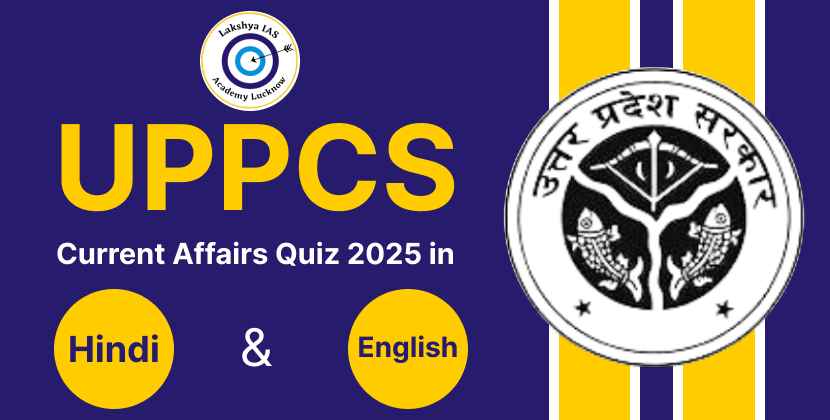
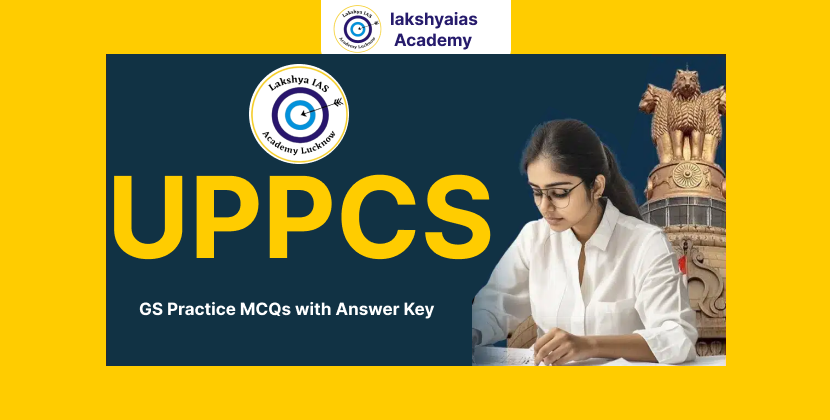
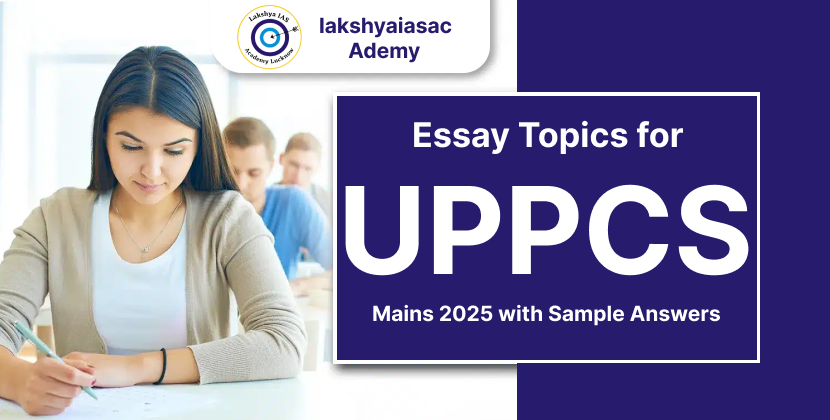
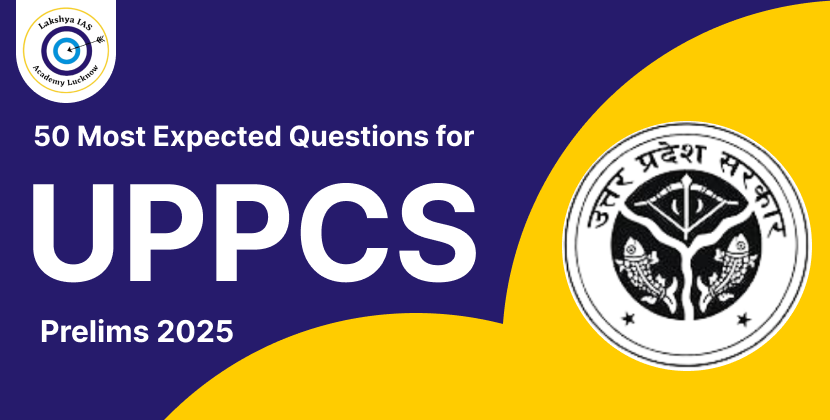
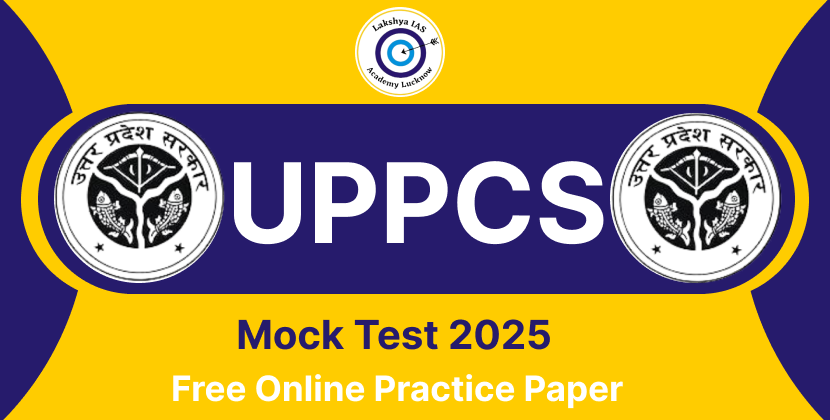
.png)
.png)
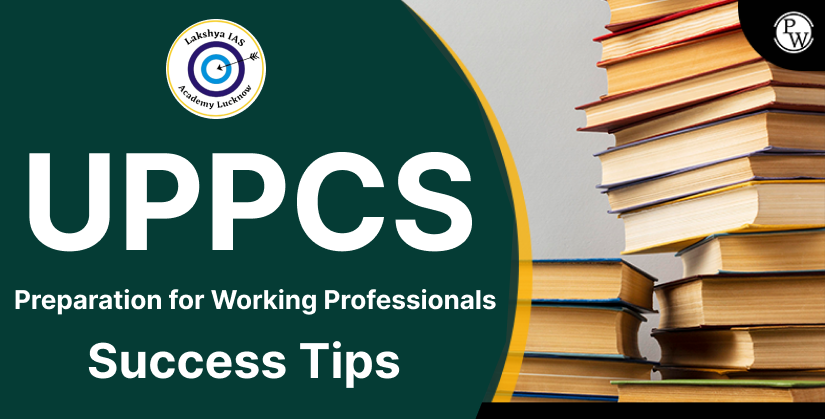
.png)
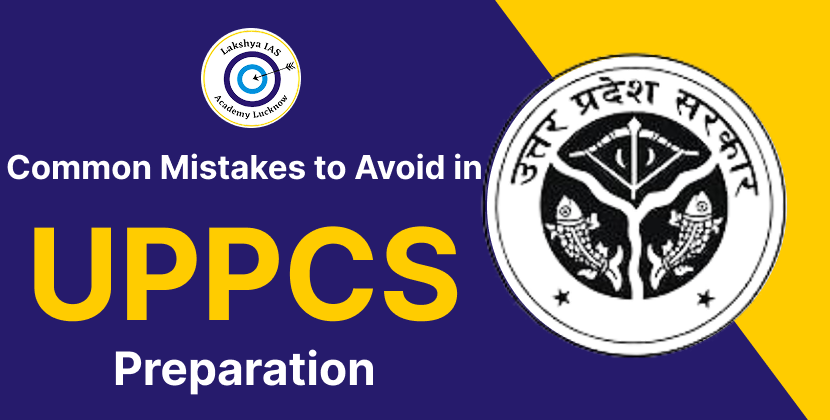
Leave a Comment